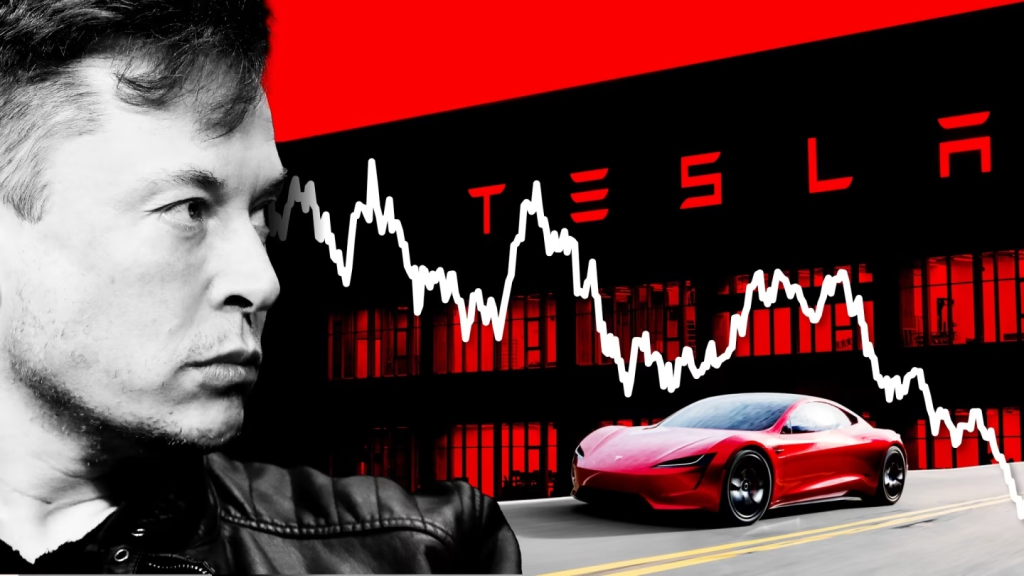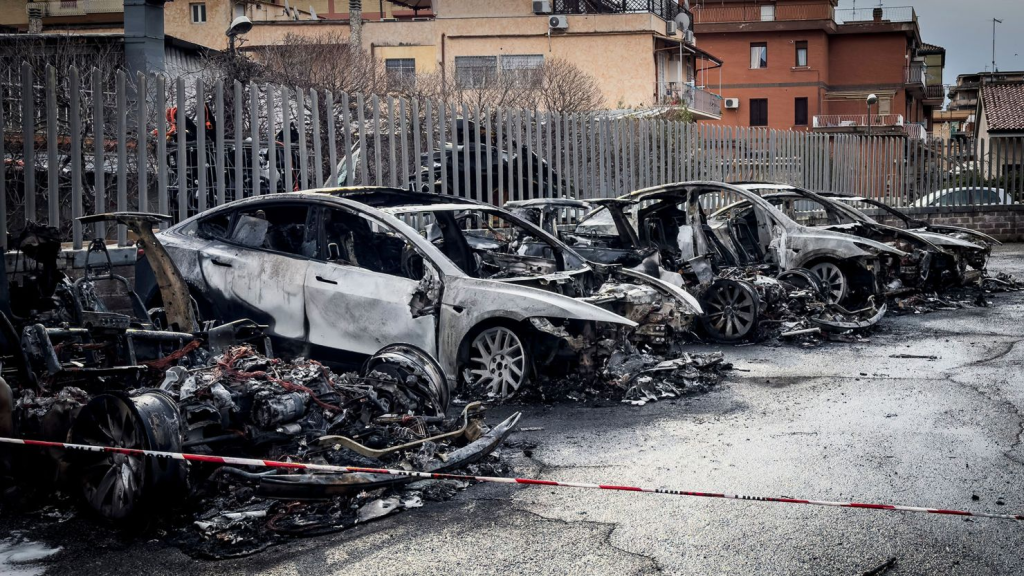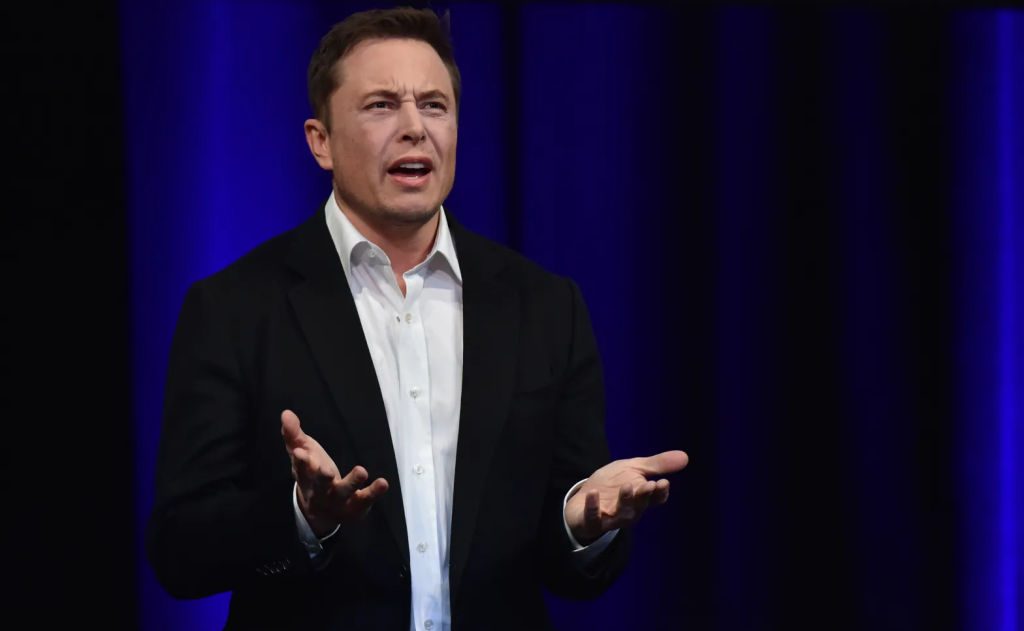
Elon Musk has long been known for his ambitious ventures in electric vehicles and space exploration, but a new and shocking revelation has cast a dark shadow over Tesla’s operations. According to leaked internal documents, Musk has reportedly invested $2.5 billion in building a massive “autonomous car graveyard” at a secret location near Starbase, Texas. This facility is allegedly set up to destroy millions of Tesla vehicles that have been deemed faulty due to system malfunctions or failures to meet quality standards post-launch.While Tesla has not publicly acknowledged such a large-scale recall or destruction initiative, the scale of the problem revealed by these leaks is alarming and has raised serious concerns about the safety and quality of Tesla’s self-driving cars, particularly those reliant on the controversial Autopilot system. The leak suggests that Tesla has been quietly accumulating a significant number of cars that are either too damaged to repair or cannot meet the company’s standards due to defects in their software or hardware.These vehicles, most of which are reported to have issues with Tesla’s self-driving systems, have not been publicly disclosed in any official recall announcements. Instead, they have been quietly shipped to this secretive graveyard, where they are systematically dismantled and destroyed.The sheer scale of the operation, as well as the reported number of vehicles involved, underscores the hidden costs associated with Tesla’s aggressive push to dominate the self-driving car market. According to industry analysts, these hidden costs could total as much as $15 billion when factoring in the expenses related to recalls, repairs, and the destruction of faulty vehicles.Tesla’s self-driving cars, particularly those equipped with the Autopilot system, have faced a series of high-profile issues in recent years. From software glitches to incidents of unintended acceleration and failure to properly detect obstacles, the company has been grappling with numerous challenges in its quest to create fully autonomous vehicles.Despite the company’s claims that its Autopilot system is safe and continues to improve, many industry experts and safety advocates have raised concerns about the readiness of the technology for mass deployment. The destruction of millions of faulty Teslas could be seen as an attempt by Musk to quietly address these issues while protecting the company’s public image, especially given the immense pressure to meet aggressive production and delivery targets.The secretive nature of the autonomous car graveyard and the lack of transparency around the issues plaguing Tesla’s self-driving cars have raised serious questions about the company’s commitment to safety and accountability. While Musk and Tesla have long championed the notion of sustainable, autonomous transportation, these revelations suggest that the company may be cutting corners in its quest to dominate the market.The destruction of potentially millions of cars, many of which may have been sold to customers, could also expose Tesla to significant legal and reputational risks, as customers may feel betrayed by the company’s lack of transparency regarding faulty vehicles. One of the most concerning aspects of this situation is the potential for widespread consumer safety issues. Tesla’s self-driving technology has been involved in several accidents, some of which have resulted in fatalities.

Tesla’s self-driving cars, particularly those equipped with the Autopilot system, have faced a series of high-profile issues in recent years. From software glitches to incidents of unintended acceleration and failure to properly detect obstacles, the company has been grappling with numerous challenges in its quest to create fully autonomous vehicles.Despite the company’s claims that its Autopilot system is safe and continues to improve, many industry experts and safety advocates have raised concerns about the readiness of the technology for mass deployment. The destruction of millions of faulty Teslas could be seen as an attempt by Musk to quietly address these issues while protecting the company’s public image, especially given the immense pressure to meet aggressive production and delivery targets.The secretive nature of the autonomous car graveyard and the lack of transparency around the issues plaguing Tesla’s self-driving cars have raised serious questions about the company’s commitment to safety and accountability. While Musk and Tesla have long championed the notion of sustainable, autonomous transportation, these revelations suggest that the company may be cutting corners in its quest to dominate the market.The destruction of potentially millions of cars, many of which may have been sold to customers, could also expose Tesla to significant legal and reputational risks, as customers may feel betrayed by the company’s lack of transparency regarding faulty vehicles. One of the most concerning aspects of this situation is the potential for widespread consumer safety issues. Tesla’s self-driving technology has been involved in several accidents, some of which have resulted in fatalities.These incidents have raised alarms about the company’s readiness to deploy fully autonomous vehicles on public roads. If the vehicles being destroyed in the alleged “graveyard” were previously sold to customers or were part of test fleets, there could be significant legal repercussions. Consumers may have unwittingly purchased faulty cars, and the company’s failure to address these issues transparently could lead to a massive loss of trust among its customer base.Despite the gravity of these concerns, Tesla has remained tight-lipped about the extent of the problem and has not issued any formal statements regarding the leaked information. The company’s silence only adds to the growing suspicion that it may be trying to bury these issues rather than confront them head-on. While Tesla has been known for its innovation and forward-thinking approach to technology, its handling of these issues, especially in the context of self-driving cars, raises serious questions about Musk’s leadership and the company’s future.Musk’s response to these allegations will be closely scrutinized, particularly as the company continues to face pressure from regulators, investors, and consumers to improve the safety and reliability of its vehicles. In the past, Musk has been quick to defend Tesla against accusations and criticisms, often using his personal social media accounts to push back against negative press.However, given the scale of the issue at hand, it is unclear how Tesla will be able to spin this situation in a way that maintains its reputation as a leader in innovation and safety. The company will likely face intense scrutiny from regulatory bodies, including the U.S. National Highway Traffic Safety Administration (NHTSA), which has already launched investigations into Tesla’s Autopilot system in the past.The potential for legal action is also high. If the allegations are confirmed, Tesla could face class-action lawsuits from customers who purchased faulty vehicles or were impacted by the company’s lack of transparency. Additionally, the destruction of cars that may have been sold to customers could result in significant financial liabilities for Tesla.The company could also face punitive damages if it is found to have intentionally hidden or destroyed evidence of faulty vehicles in an effort to avoid regulatory scrutiny or damage to its reputation. In conclusion, the revelation of Elon Musk’s $2.5 billion investment in a secretive autonomous car graveyard to destroy faulty Teslas has raised serious questions about the company’s practices, its commitment to safety, and its ability to be transparent with customers and regulators.The financial and legal implications of this operation are enormous, with estimates suggesting that the total cost of recalling and destroying the vehicles could reach $15 billion. Musk’s decision to quietly dispose of these cars rather than address the underlying issues head-on could have lasting consequences for Tesla’s reputation and future growth.The company must now contend with the fallout from this scandal, which could shape the public’s perception of Tesla for years to come. Whether Tesla can recover from this crisis will depend on its ability to rebuild trust with consumers and regulators and address the core issues that have led to the need for such drastic measures.
